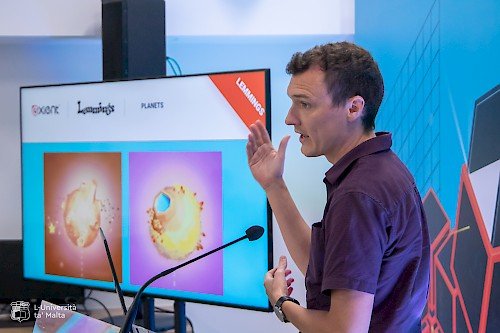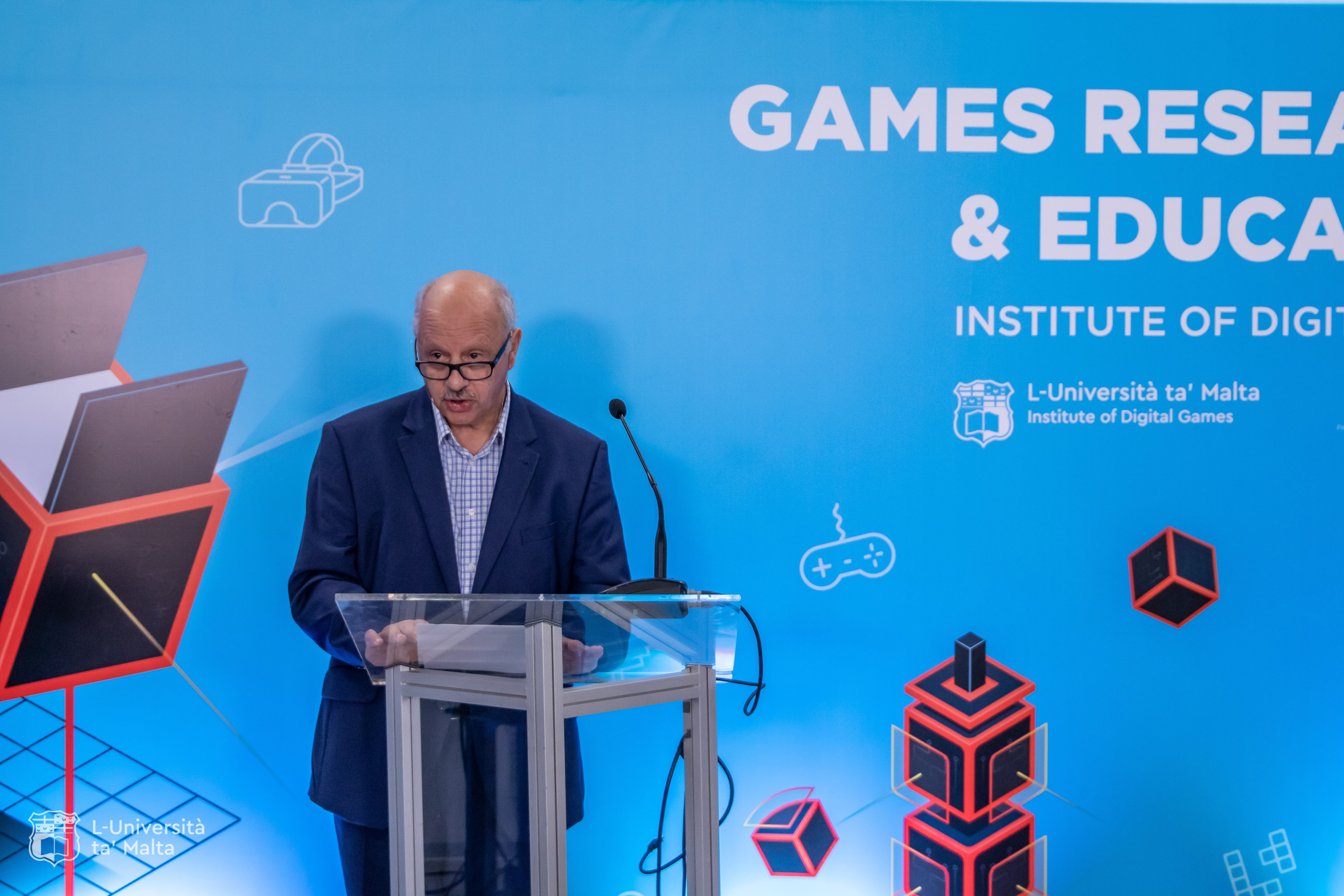
University of Malta Celebrating Game Research


Parliamentary Secretary for Financial Services, Digital Economy and Innovation Hon. Silvio Schembri inaugurated the new premises of the Institute of Digital Games at the University of Malta yesterday. A full-day celebration of games research and education followed the inauguration with a series of quick-fire talks from a wide range of disciplines utilising games for research and education in the Institute and throughout the University.
Addressing over 100 attendees taking part in the event, the Parliamentary Secretary emphasised that the government is aiming to position Malta as a major hub for the videogame sector and the expansion of the institute is the next appropriate step toward further supporting the sector.
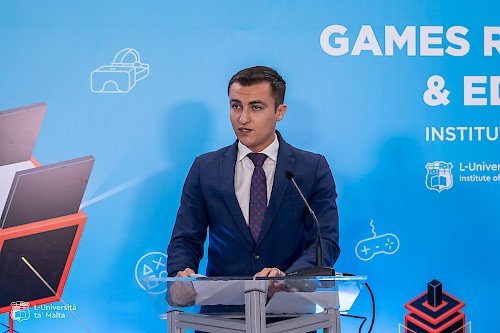
Prof. Alfred Vella, Rector University of Malta, highlighted the importance of meeting the needs of industry and harnessing the power of games for education adding that “we have a world-class post-graduate research institute right here where we stand today. Digital games are not a single discipline and the institute works together with the departments throughout the whole University”.
University of Malta ranks among the best game design universities in the world
The M.Sc. in Digital Games ranks in the global top-20 of postgraduate programmes in game design according to the Princeton Review. In terms of research excellence, the Institute ranks in the top-10.
Prof. Yannakakis, Director of the Institute of Digital Games was proud of what the Institute has been able to achieve, highlighting the research funding the IDG has managed to secure as well as the academic impact of their work globally speaking. He praised the multi-disciplinary nature of the programme, making it possible for game developers and scientists to come together with professionals from other areas such as humanities and work on developing games together.
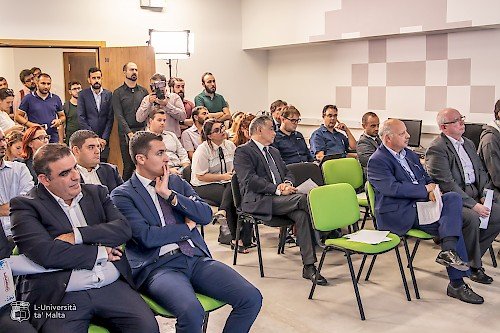
AI and Games Research Crucial to Industry
Gabriel Robert, Lead Gameplay Programmer at Ubisoft – one of the giants of the videogame industry - spoke of the importance of game research for driving innovation, both technologically and creatively particularly in large Triple-A studios.
As a focus area of the Institute, it is constantly trying to pushing the boundaries in the area Artificial Intelligence in games. In addition to their own research, our students benefit from the influx of highly influential AI researchers such as Dr. Jean-Baptiste Mouret and Dr. Sebastian Risi. The Institute finds itself at the crossroads of two central strategies in Malta, the Videogame and eSports strategy and National AI Strategy and with the continuous national development and growth of both sectors we expect the dynamism and knowledge exchange to increase even more.
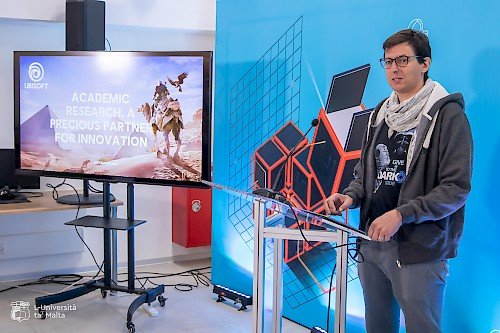
A Game Design University – More than just a Game Design Institute
The afternoon was dedicated to academic talks relating to games and presentations of the ongoing projects of some of key local videogame companies such as Exient, Dorado Games, and Playmagic. True to the multi-disciplinary nature of games academic talks ranged from artificial intelligence, blockchain, graphics engines, all the way to philosophy, literature, and classics. It was encouraging to see the synergy and convergence from the different entities and disciplines at the University of Malta such as the Institute of Linguistics and Language Technology, the Dept. of English, Dept. of Computer Science, Dept. of Cognitive Sciences, Faculty of ICT, E de Bono Inst. for the Design & Dev of Thinking, Faculty of Media & Knowledge Sciences, Faculty of Arts and even the Centre for Molecular Medicine and Biobanking.
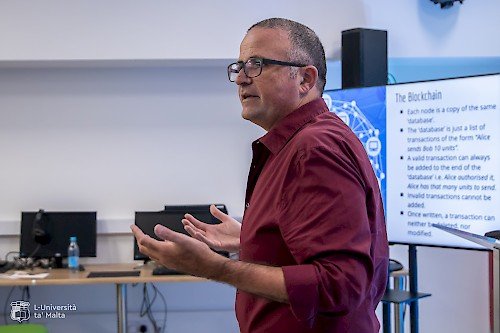
A Bright Future for Digital Games in Malta
The diversity attending the event was encouraging for the future of the games industry in Malta and also provided a great opportunity for various industry stakeholders to get together and share their ideas and areas of expertise planting the seeds for future working together on future projects. The event was a clear indication that videogames have the potential to not only drive an economic industry, but also drive educational and technological innovation to new heights and Malta is well-placed to harness this through the Institute of Digital Games at the University of Malta.
